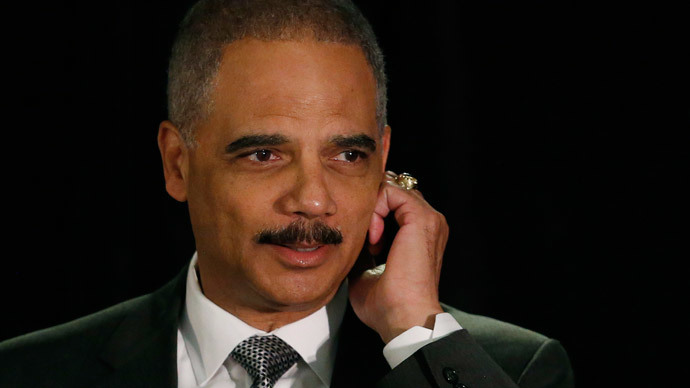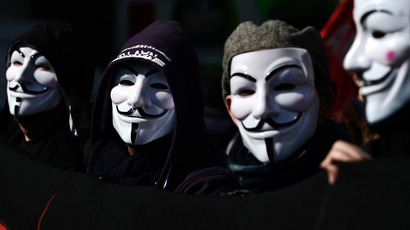US charges 5 Chinese officials in cyberspying case

A grand jury in the United States has indicted five members of the Chinese military with hacking into American computer networks and engaging in cyber espionage on behalf of a foreign government.
A grand jury in the United States has indicted five members of the Chinese military with hacking into American computer networks and engaging in cyber espionage on behalf of a foreign government.
The individuals — all allegedly officers of an elite cyber squad within the People’s Liberation Army, US federal prosecutors said Monday — are accused of hacking six American entities and stealing valuable trade secrets and other sensitive business information on behalf of China.
Among those that were targeted, the Department of Justice says, are nuclear technology developer Westinghouse and a large integrated specialties metal company headquarter in Pittsburgh, Pennsylvania, as well as the computer system of a major steelworkers union.
According to US officials, the hackers are all members of the PLA’s prestigious but highly secretive Unit 61398, which a well touted investigation conducted in by cybersecurity firm Mandiant in 2013 revealed to be responsible for targeting no fewer than 141 companies across 20 major industries, including Lockheed Martin, the Chertoff Group and Coca-Cola, all from a 12-story office building in Shanghai.
“We allege that members of Unit 61398 conspired to hack into computers of six US victims to steal information that would provide an economic advantage to the victim’s competitors, including Chinese, state-owned enterprises,” said John P Carlin, the assistant attorney general for the Federal Bureau of Investigation’s national security division, at Monday’s announcement.
“For the first time,” Carlin continued, “we are exposing the faces and names behind the keyboards in Shanghai used to steal from American businesses.”
A new era of global cyber battles: FBI issues Wanted poster for alleged Chinese army officers hacking US firms. pic.twitter.com/ycXh4ZEZ0W
— Devlin Barrett (@DevlinBarrett) May 19, 2014
PLA officers maintained unauthorized access to victim’s computers, US Attorney General Eric Holder said at Monday’s announcement, “useful to competitors in China, including state-owned enterprises.” Once those systems were breached, the hackers are alleged to have taken trade secrets and sensitive internal communications, which federal prosecutors say were used to give China a competitive edge over American business opponents.
In a summary of the alleged conduct released by the DOJ on Monday, the hackers are accused of using an array of techniques to target the victims, including sending malicious code and attempting to phish sensitive details from employees, sometimes in the midst of negotiations between industry partners in the US and China.
Speaking to reporters during the event, Holder said “the alleged hacking appears to have been conducted for no other reason” than to benefit state-owned businesses competitors in China.
“The range of trade secrets and other sensitive business information stolen in this case is significant and demands an aggressive response,” Holder added in a DOJ statement. “Success in the global market place should be based solely on a company’s ability to innovate and compete, not on a sponsor government’s ability to spy and steal business secrets. This administration will not tolerate actions by any nation that seeks to illegally sabotage American companies and undermine the integrity of fair competition in the operation of the free market.”
In response to this allegations Chinese foreign ministry announced that it is suspending activities of Sino-US internet working group, according to Reuters.

A grand jury in the Western District of Pennsylvania charges thatWang Dong, Sun Kailiang, Wen Xinyu, Huang Zhenyu and Gu Chunhui participated in the hacks as officers of Unit 61398 within the Third Department of the PLA. Between 2006 and 2014, the indictment alleges, they targeted the networks of Westinghouse Electric Co., US subsidiaries of SolarWorld AG, United States Steel Corp. , Allegheny Technologies Inc. (ATI), the United Steel, Paper and Forestry, Rubber, Manufacturing, Energy, Allied Industrial and Service Workers International Union (USW) and Alcoa Inc.
In all, the PLA agents are charged with 31 counts apiece, including multiple counts under the US Computer Fraud and Abuse Act and allegations of aggravated identity theft, trade secret theft and economic espionage.
Earlier this year, secret documents revealed by former National Security Agency contractor Edward Snowden suggested that the NSA has targeted not only the government of China, but also telecom giants, banks and top fedral officials. Specifically the US intelligence agency targeted the world's second-largest network equipment supplier, Huawei Technologies.
At Monday’s event, however, Holder quoted US President Barack Obama as having said: “We do not collect intelligence to provide a competitive advantage to US companies or to the US commercial sector.”
But businesses and government officials alike from around the globe have critiqued those assurances from the Obama administration, though, particularly in the wake of Snowden leaks that indeed suggested that the US has engaged in economic espionage against several foreign entities, including ones in France, Mexico, Brazil and China.

Speaking to Democracy Now! earlier this month, national security writer Glenn Greenwald said economic espionage is a critical point among allegations concerning the NSA, “not so much because the US government has vehemently denied that they engage in economic spying — though they have — and not so much because they’ve accused other countries, particularly the Chinese, of engaging in economic spying while they do it — although that, too, is true — but it shows how deceitful the US government is with its own public.”
Despite vehemently denying allegations of economic spying, Greenwald said, the NSA has nevertheless been linked to acts of espionage targeting the largest Brazilian oil company, Petrobras, as well as the World Bank and theIMFand the SWIFT banking system, among others.
"If it is true, the irony is that exactly what they are doing to us is what they have always charged that the Chinese are doing through us," William B. Plummer, the Huawei's vice president of external affairs, told the Associated Press last month.
Prior to the release last year the 2013 Mandiant’s report, the Chinese Defense Ministry issued a statement saying “it is unprofessional and groundless to accuse the Chinese military of launching cyber attacks without any conclusive evidence.”
“Groundless criticism is irresponsible and unprofessional, and it will not help to solve the problem," Hong Lei, a spokesman for the Ministry, said of the analyst when it was published, “Hacking attacks are transnational and anonymous. Determining their origins are extremely difficult. We don't know how the evidence in this so-called report can be tenable.”














